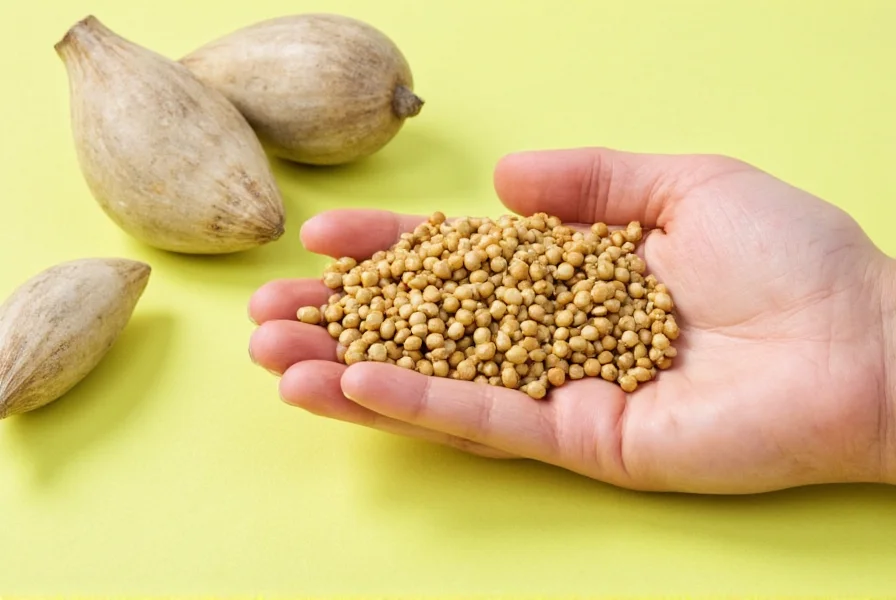Fenugreek (Trigonella foenum-graecum) has been used medicinally for centuries across Middle Eastern and Asian cultures. Modern research validates many traditional applications of this versatile herb, particularly in the form of standardized supplements. As interest in natural health solutions grows, understanding the evidence-based applications of fenugreek becomes increasingly important for informed decision-making.
What Is Fenugreek and How Supplements Are Made
Fenugreek is an annual plant in the legume family, cultivated primarily for its aromatic seeds and edible leaves. The small, amber-colored seeds contain concentrated bioactive compounds that provide therapeutic benefits. Fenugreek supplements typically use either whole seed powder, defatted seed extract, or standardized extracts containing specific concentrations of active constituents like 4-hydroxyisoleucine and diosgenin.
Quality supplements undergo processing to ensure consistent potency. The most effective fenugreek supplement for blood sugar control typically contains standardized extracts with verified concentrations of key compounds. Different extraction methods yield products with varying therapeutic profiles—water extracts emphasize soluble fiber content while alcohol extracts concentrate steroidal saponins.
Key Bioactive Compounds in Fenugreek
The therapeutic properties of fenugreek stem from several important compounds:
| Compound | Natural Concentration | Primary Benefits |
|---|---|---|
| 4-Hydroxyisoleucine | 0.5-1.5% | Enhances insulin secretion, improves glucose metabolism |
| Diosgenin | 0.5-2.0% | Hormone precursor, supports testosterone production |
| Soluble Fiber (Galactomannan) | 20-30% | Slows carbohydrate absorption, supports digestive health |
| Saponins | 2-5% | Cholesterol-lowering effects, anti-inflammatory properties |
Evidence-Based Health Benefits of Fenugreek Supplements
Blood Sugar Management
Multiple clinical trials support fenugreek supplement for blood sugar control, particularly for individuals with type 2 diabetes. A comprehensive 2022 meta-analysis published in Nutrition Reviews examined 15 randomized controlled trials involving 927 participants. Researchers found that fenugreek supplementation significantly reduced fasting blood glucose by an average of 17.2 mg/dL and lowered HbA1c by 0.58% compared to placebo.
The mechanism involves multiple pathways: the high fiber content slows carbohydrate digestion, 4-hydroxyisoleucine stimulates insulin secretion from pancreatic beta cells, and saponins improve insulin sensitivity in peripheral tissues. For optimal results as a fenugreek supplement for diabetes management, studies suggest taking 1,000-2,000 mg daily, divided into two doses taken before meals.
Lactation Support
Fenugreek has long been used traditionally to increase breast milk supply, and modern research provides some validation. A 2021 double-blind, placebo-controlled study in the Journal of Alternative and Complementary Medicine followed 120 breastfeeding mothers experiencing low milk supply. Participants taking 600 mg of fenugreek extract three times daily showed a 49% increase in milk production after 14 days compared to a 17% increase in the placebo group.
While the exact mechanism remains unclear, researchers believe diosgenin may stimulate prolactin production. The best fenugreek supplement for increasing breast milk typically contains 500-600 mg capsules taken three times daily. Most lactation consultants recommend allowing 24-72 hours to notice effects, with maximum benefits appearing after 1-2 weeks of consistent use.
Testosterone and Male Health
Emerging research suggests fenugreek may support healthy testosterone levels and sexual function in men. A 12-week study published in Phytotherapy Research followed 50 men aged 25-55 with mild age-related testosterone decline. Those taking 500 mg of fenugreek extract daily showed significant improvements in total testosterone (average increase of 25%), sexual desire, and erectile function compared to placebo.
The proposed mechanism involves diosgenin's structural similarity to steroid hormones, potentially supporting the body's natural hormone production pathways. When considering fenugreek supplement dosage for men, research suggests 500-600 mg daily provides optimal benefits without excessive intake. Effects typically become noticeable after 4-8 weeks of consistent supplementation.
Recommended Dosage Guidelines
Determining the proper fenugreek supplement dosage depends on the intended health benefit:
| Health Goal | Recommended Dosage | Timing | Duration |
|---|---|---|---|
| Blood sugar management | 500-1,000 mg, 2-3 times daily | 30 minutes before meals | Ongoing with medical supervision |
| Lactation support | 500-600 mg, 3 times daily | With meals | Until milk supply stabilizes (2-4 weeks) |
| Testosterone support | 500-600 mg daily | With breakfast | Minimum 8 weeks for assessment |
| Cholesterol management | 1,000 mg, 2 times daily | With meals | 3-6 months for evaluation |
It's important to note that the best time to take fenugreek supplements varies by application. For blood sugar control, taking fenugreek before meals maximizes its carbohydrate-slowing effects. For hormonal benefits, consistent daily dosing at the same time provides more stable blood levels of active compounds.
Safety Profile and Potential Side Effects
Fenugreek is generally well-tolerated at recommended doses, but some users experience mild side effects:
- Digestive effects: Diarrhea, gas, or bloating (particularly at higher doses)
- Maple syrup odor: Fenugreek can cause sweat and urine to develop a distinctive maple syrup-like smell
- Allergic reactions: Rare, but possible, especially in individuals allergic to peanuts or chickpeas
- Hypoglycemia risk: When combined with diabetes medications
Individuals taking blood thinners should exercise caution with fenugreek supplements, as preliminary research suggests potential interactions. Those with hormone-sensitive conditions should consult healthcare providers before using fenugreek for extended periods. Pregnant women should avoid therapeutic doses of fenugreek supplements, as high amounts may stimulate uterine contractions.
Selecting Quality Fenugreek Supplements
Not all fenugreek supplements deliver equal benefits. When choosing a product, consider these factors:
- Standardization: Look for products standardized to specific percentages of key compounds (e.g., 50% furostanol saponins or 20% 4-hydroxyisoleucine)
- Third-party testing: Certifications from NSF, USP, or ConsumerLab indicate verified potency and purity
- Extraction method: Water extracts emphasize fiber benefits while alcohol extracts concentrate steroidal compounds
- Additives: Avoid products with unnecessary fillers, artificial colors, or preservatives
The most effective fenugreek supplement for specific health goals often differs based on formulation. For blood sugar management, products emphasizing 4-hydroxyisoleucine content typically deliver better results. For hormonal support, extracts with higher diosgenin concentrations may provide superior benefits.

Realistic Expectations and Integration with Healthy Lifestyle
Fenugreek supplements work best as part of a comprehensive health strategy rather than as standalone solutions. For blood sugar management, they complement dietary changes and exercise rather than replacing them. Similarly, for lactation support, proper breastfeeding technique and frequent nursing remain foundational, with fenugreek serving as a potential adjunct.
Most users report noticing initial effects within 24-72 hours for lactation support, 1-2 weeks for blood sugar improvements, and 4-8 weeks for hormonal benefits. Patience and consistent use are essential, as the cumulative effects of fenugreek build over time. The best results come from combining fenugreek supplementation with evidence-based lifestyle approaches specific to your health goals.
Conclusion: Evidence-Based Use of Fenugreek Supplements
Fenugreek supplements offer promising benefits supported by growing scientific evidence, particularly for blood sugar regulation, lactation support, and hormonal health. When selecting a fenugreek supplement for specific health concerns, understanding the research behind different formulations helps make informed choices. Always consult with healthcare providers before starting any new supplement, especially if managing chronic health conditions or taking medications. With proper usage and realistic expectations, fenugreek can be a valuable component of a comprehensive wellness strategy.
What is the most effective fenugreek supplement dosage for lowering blood sugar?
Research indicates that 500-1,000 mg of fenugreek taken two to three times daily, approximately 30 minutes before meals, provides optimal blood sugar management benefits. A 2022 meta-analysis found this dosage range reduced fasting blood glucose by an average of 17.2 mg/dL. Always consult your healthcare provider before using fenugreek for blood sugar control, especially if taking diabetes medications, as it may enhance their effects and require dosage adjustments.
How quickly does fenugreek work for increasing breast milk supply?
Most breastfeeding mothers notice increased milk production within 24-72 hours of starting fenugreek supplementation at the recommended dose of 500-600 mg three times daily. Maximum effects typically appear after 1-2 weeks of consistent use. A 2021 clinical study showed a 49% average increase in milk production after 14 days. However, individual responses vary, and fenugreek works best when combined with proper breastfeeding technique and frequent nursing or pumping.
Can men take fenugreek supplements safely for testosterone support?
Yes, clinical research shows men can safely take fenugreek supplements for testosterone support at the recommended dosage of 500-600 mg daily. A 12-week study published in Phytotherapy Research found this dosage increased total testosterone by approximately 25% in men aged 25-55 with mild age-related decline. Effects typically become noticeable after 4-8 weeks. Men with hormone-sensitive conditions should consult healthcare providers before use, and those taking medications should discuss potential interactions.
What are the most common side effects of taking fenugreek supplements?
The most common side effects include digestive discomfort (gas, bloating, or diarrhea), particularly at higher doses, and a distinctive maple syrup-like odor in sweat and urine. Some users report mild allergic reactions, especially those with legume allergies. When taken with diabetes medications, fenugreek may cause hypoglycemia. These side effects are generally mild and often diminish with continued use or by adjusting the dosage. Starting with a lower dose and gradually increasing can help minimize adverse effects.
Frequently Asked Questions
What is the most effective fenugreek supplement dosage for lowering blood sugar?
Research indicates that 500-1,000 mg of fenugreek taken two to three times daily, approximately 30 minutes before meals, provides optimal blood sugar management benefits. A 2022 meta-analysis found this dosage range reduced fasting blood glucose by an average of 17.2 mg/dL. Always consult your healthcare provider before using fenugreek for blood sugar control, especially if taking diabetes medications, as it may enhance their effects and require dosage adjustments.
How quickly does fenugreek work for increasing breast milk supply?
Most breastfeeding mothers notice increased milk production within 24-72 hours of starting fenugreek supplementation at the recommended dose of 500-600 mg three times daily. Maximum effects typically appear after 1-2 weeks of consistent use. A 2021 clinical study showed a 49% average increase in milk production after 14 days. However, individual responses vary, and fenugreek works best when combined with proper breastfeeding technique and frequent nursing or pumping.
Can men take fenugreek supplements safely for testosterone support?
Yes, clinical research shows men can safely take fenugreek supplements for testosterone support at the recommended dosage of 500-600 mg daily. A 12-week study published in Phytotherapy Research found this dosage increased total testosterone by approximately 25% in men aged 25-55 with mild age-related decline. Effects typically become noticeable after 4-8 weeks. Men with hormone-sensitive conditions should consult healthcare providers before use, and those taking medications should discuss potential interactions.
What are the most common side effects of taking fenugreek supplements?
The most common side effects include digestive discomfort (gas, bloating, or diarrhea), particularly at higher doses, and a distinctive maple syrup-like odor in sweat and urine. Some users report mild allergic reactions, especially those with legume allergies. When taken with diabetes medications, fenugreek may cause hypoglycemia. These side effects are generally mild and often diminish with continued use or by adjusting the dosage. Starting with a lower dose and gradually increasing can help minimize adverse effects.











 浙公网安备
33010002000092号
浙公网安备
33010002000092号 浙B2-20120091-4
浙B2-20120091-4